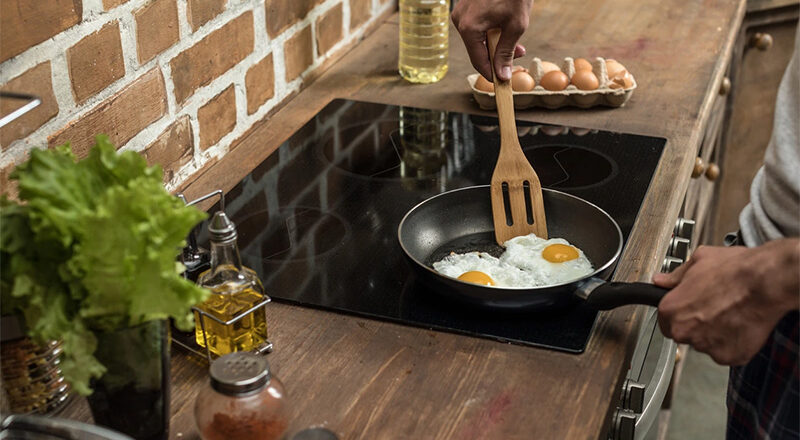In the realm of modern cooking, using cast iron on induction cooktops is a topic that sparks curiosity among many culinary enthusiasts. This intersection of traditional cookware with cutting-edge technology presents unique challenges and opportunities. In this article, we will explore the nuances of using cast iron with varying coil sizes on induction cooktops.
Understanding how cast iron interacts with induction technology is crucial for anyone looking to optimize their cooking experience. Whether you’re a seasoned chef or just starting in the kitchen, knowing the right coil size for your cast iron cookware can significantly impact your culinary creations.

What is Induction Cooking?
Induction cooking is a revolutionary method that uses electromagnetic fields to directly heat pots and pans. Unlike traditional gas or electric cooktops, induction cooktops remain cool to the touch while the cookware heats up rapidly. This technology offers precise temperature control and energy efficiency, making it a favorite among professional chefs and home cooks alike. For a deeper understanding, you can explore how induction cooktops work.
Why Choose Cast Iron for Induction Cooking?
Cast iron cookware is renowned for its durability, excellent heat retention, and ability to provide even cooking. Its compatibility with induction cooktops lies in its ferrous metal composition, which is essential for the electromagnetic process to take place. For those curious about the compatibility, you can visit cast iron and induction compatibility to learn more.
The Importance of Coil Size
The size of the induction coil plays a pivotal role in the performance of cast iron cookware. A properly sized coil ensures even distribution of heat, preventing hotspots and promoting uniform cooking. This is particularly important for delicate dishes that require precise temperature control.
How to Determine the Right Coil Size
Choosing the correct coil size involves considering the diameter of your cast iron cookware. Ideally, the coil should match the size of the cookware’s base to ensure efficient heat transfer. A coil that is too small may lead to uneven heating, while a coil that is too large can waste energy.
Benefits of Using Cast Iron on Induction
Using cast iron on induction cooktops offers several advantages. The rapid heating capability of induction technology complements the heat retention properties of cast iron, allowing for quick searing and browning. Additionally, the even heat distribution minimizes the risk of burning or undercooking food.
Challenges and Solutions
Despite its benefits, using cast iron on induction cooktops can present some challenges. One common issue is the weight of cast iron, which can be cumbersome to handle on smooth induction surfaces. To mitigate this, consider using a mat or pad to stabilize the cookware.
Maintaining Your Cast Iron Cookware
Proper maintenance of your cast iron cookware is essential to ensure longevity and optimal performance. Regular seasoning and gentle cleaning are crucial to prevent rust and maintain the non-stick surface. For detailed cleaning tips, visit cast iron cleaning tips.
Seasoning Your Cast Iron
Seasoning is the process of applying a thin layer of oil to the cast iron surface and heating it to create a protective coating. This not only prevents rust but also enhances the non-stick properties of the cookware.
Cleaning and Storage
After each use, it’s important to clean your cast iron cookware with warm water and a stiff brush. Avoid using soap, as it can strip the seasoning layer. Once clean, dry thoroughly and apply a light coat of oil before storing.

FAQs
Can I use any cast iron on an induction cooktop?
Yes, as long as the cast iron is ferrous, it will work with an induction cooktop. It’s important to ensure that the bottom of the cookware is flat to maximize contact and efficiency.
What happens if the coil size is too small for my cookware?
If the coil size is too small, it may result in uneven heating, which can affect cooking performance. It’s best to match the coil size with the cookware for optimal results.
How do I know if my cookware is induction compatible?
Check if a magnet sticks to the bottom of the cookware. If it does, it is likely compatible with induction cooktops.
This article contains affiliate links. We may earn a commission at no extra cost to you.

